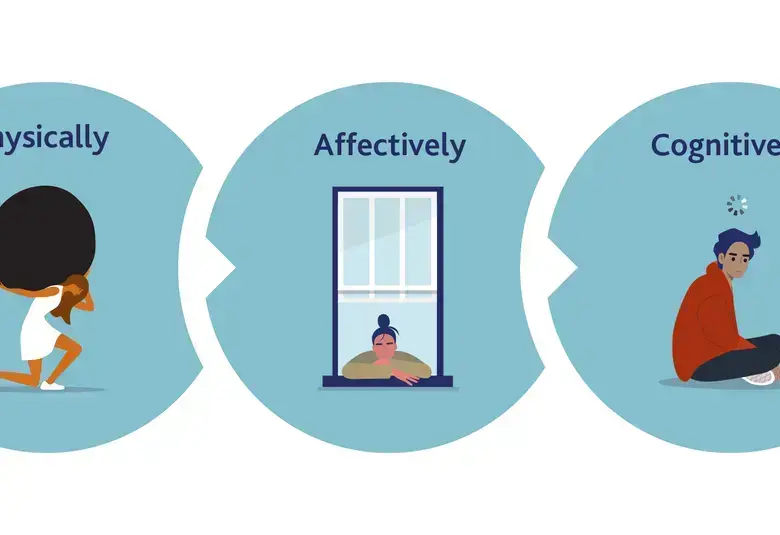Many people with mental health diseases will experience additional emotional distress when faced with the physical health threat that COVID-19 poses to them and their loved ones. This may be exacerbated by the effects of social isolation and quarantine. To help clinicians support their patients, the American Psychiatric Association has brought together a set of resources. Here we summarise some important elements.
코로나바이러스감염증-19(코로나19)가 많은 정신 질환자와 환자 가족의 신체적 건강에 위협을 가함에 따라 환자들의 정신적 고충이 가중될 것으로 보입니다. 사회적 고립과 격리의 영향으로 인해 상황은 더 악화될 수 있습니다. 미국정신의학회(American Psychiatric Association)는 임상의들의 환자 지원을 돕기 위해 활용할 수 있는 자료들을 취합했습니다. 그 주요 내용을 간단하게 정리해 보았습니다.
Helping the vulnerable
가장 취약한 이들을 돕는 방법
Psychiatrists acknowledge patients’ concerns, fears and uncertainty, share medical knowledge and correct misinformation, and promote steps to reduce distress and sustain normal healthy behaviors including sleep and social contact.
정신과 전문의는 환자가 느끼는 우려, 두려움, 불확실성을 인정하고, 의료 지식을 공유하며 잘못된 정보는 정정해 주어야 합니다. 또한, 고통을 경감시키고 정상적이고 건강한 행동들(수면, 사회적 교류 등)의 유지를 장려해야 합니다.
It is helpful to discourage excessive exposure to media coverage of stressful events since this can increases negative mental health outcomes.
스트레스를 가중시키는 언론 보도를 과도하게 접하면 정신 건강에 미치는 악영향이 가중될 수 있으므로 이런 정보에 대한 노출을 자제하는 것이 좋습니다.
Among those who may be particularly vulnerable during the pandemic are people with delusions, obsessive-compulsive thoughts and behaviors, uncontrolled psychiatric symptoms, and those with a prior history of severe trauma.
코로나19 대유행 중에는 망상, 강박 관념과 강박 행동, 통제 불가능한 정신 질환 증상 등을 보이는 환자, 그리고 중증 정신적 외상 이력이 있는 이들의 정신 건강이 특히 취약할 수 있습니다.
Excessive exposure to coverage of stressful events can negatively impact mental health
스트레스를 가중시키는 언론 보도를 과도하게 접하면 정신 건강에 악영향이 있을 수 있습니다
In greater detail:
조금 더 자세히 설명하면 다음과 같습니다.
- Emotional distress is common and understandable. Acknowledging and normalizing this can help, as in “I see that you’re stressed, and that’s understandable. Many people are feeling this way right now.”
- Encourage patients to recognize and become aware of signs of distress including worry, fear, insomnia, difficulty concentrating, interpersonal problems, avoidance of certain situations, and increased use of alcohol or tobacco.
- Among strategies to reduce distress are taking everyday preventive measures such as frequent handwashing, maintaining a healthy diet and exercise, talking to loved ones about worries and concerns, and the pursuit of pleasurable hobbies.
- 정서적 고통은 누구나 흔히 겪고 이해될 수 있는 현상입니다. “지금 스트레스를 받고 계시군요. 충분히 이해합니다. 지금 많은 사람들이 같은 처지에 놓여 있습니다” 라며 이런 사실을 알아주고 정상적인 현상으로 받아들일 수 있게 해주는 것이 좋습니다.
- 걱정, 두려움, 불면증, 집중력 저하, 대인 관계 문제, 특정 상황에 대한 회피, 음주 혹은 흡연 증가 등 환자들이 스스로 고통의 징후를 인지하고 알 수 있도록 장려하십시오.
- 고통을 줄이는 전략 중에는 손 자주 씻기, 건강한 식사 및 운동, 걱정과 우려에 대한 가족 및 지인과의 소통, 취미 즐기기 등의 일상적인 예방 조치들이 있습니다.
Based on Taking Care of Patients During the Coronavirus Outbreak: A Guide for Psychiatrists; and Caring for Patients’ Mental Well-Being During Coronavirus and Other Emerging Infectious Diseases: A Guide for Clinicians. Both are from the Center for the Study of Traumatic Stress, Uniformed Services University, Bethesda, MD.
위 내용은 '코로나19 확산 중 환자 관리: 정신과 전문의를 위한 지침(Taking Care of Patients During the Coronavirus Outbreak: A Guide for Psychiatrists)'과 '코로나19 및 기타 전염병 확산 중 환자의 정신 건강 관리: 의료진을 위한 지침(Caring for Patients’ Mental Well-Being During Coronavirus and Other Emerging Infectious Diseases: A Guide for Clinicians)'에 근거했습니다. 이 두 지침은 미국 메릴랜드 주 베데스다 소재 국립군의관의과대학(USU) 외상스트레스연구센터(Center for the Study of Traumatic Stress)에서 배포하였습니다.
Dealing with isolation and quarantine
고립과 격리에 대처하는 법
Sources of stress include frustration and boredom, being stigmatized, fear of the infection, inadequate provision of food and medical supplies, absence of face-to-face contact with others (including healthcare providers), disruption of routine, and anxiety about financial loss.
스트레스 유발 원인에는 좌절감과 권태, 사회적 낙인, 감염의 두려움, 식량 및 의료품 제공의 부족, 타인(의료인 포함)과의 대면 접촉 부재, 일상의 중단, 재정적 손실에 대한 불안감 등이 있습니다.
Steps to mitigate these psychological consequences include advice on how to make preparations for isolation (including planning activities to counter boredom), the provision of clear and accurate information about the disease and the possible need to extend quarantine, and practical help in maintaining communication with others.
이러한 심리적 악영향을 완화하는 방법에는 격리 준비 방법에 대한 조언(권태를 견디기 위한 활동 계획 등), 질병에 관한, 그리고 격리 기간 연장 가능성에 관한 명확하고 정확한 정보 제공, 타인과의 소통을 유지할 수 있는 실질적 해결 방법 제공 등이 있습니다.
Based on Psychological Effects of Quarantine During the Coronavirus Outbreak, from the Center for the Study of Traumatic Stress, Uniformed Services University, Bethesda, MD. This uses as a source Brooks SK, et al. The Lancet 2020; February 26
위 내용은 미국 메릴랜드 주 베데스다 소재 국립군의관의과대학(USU) 외상스트레스연구센터의 '코로나19 확산 중 격리가 미치는 심리적 영향(Psychological Effects of Quarantine During the Coronavirus Outbreak)'에 근거했습니다. 이 보고서는 “Brooks SK, et al. The Lancet 2020; February 26”를 기초로 하여 작성되었습니다.




